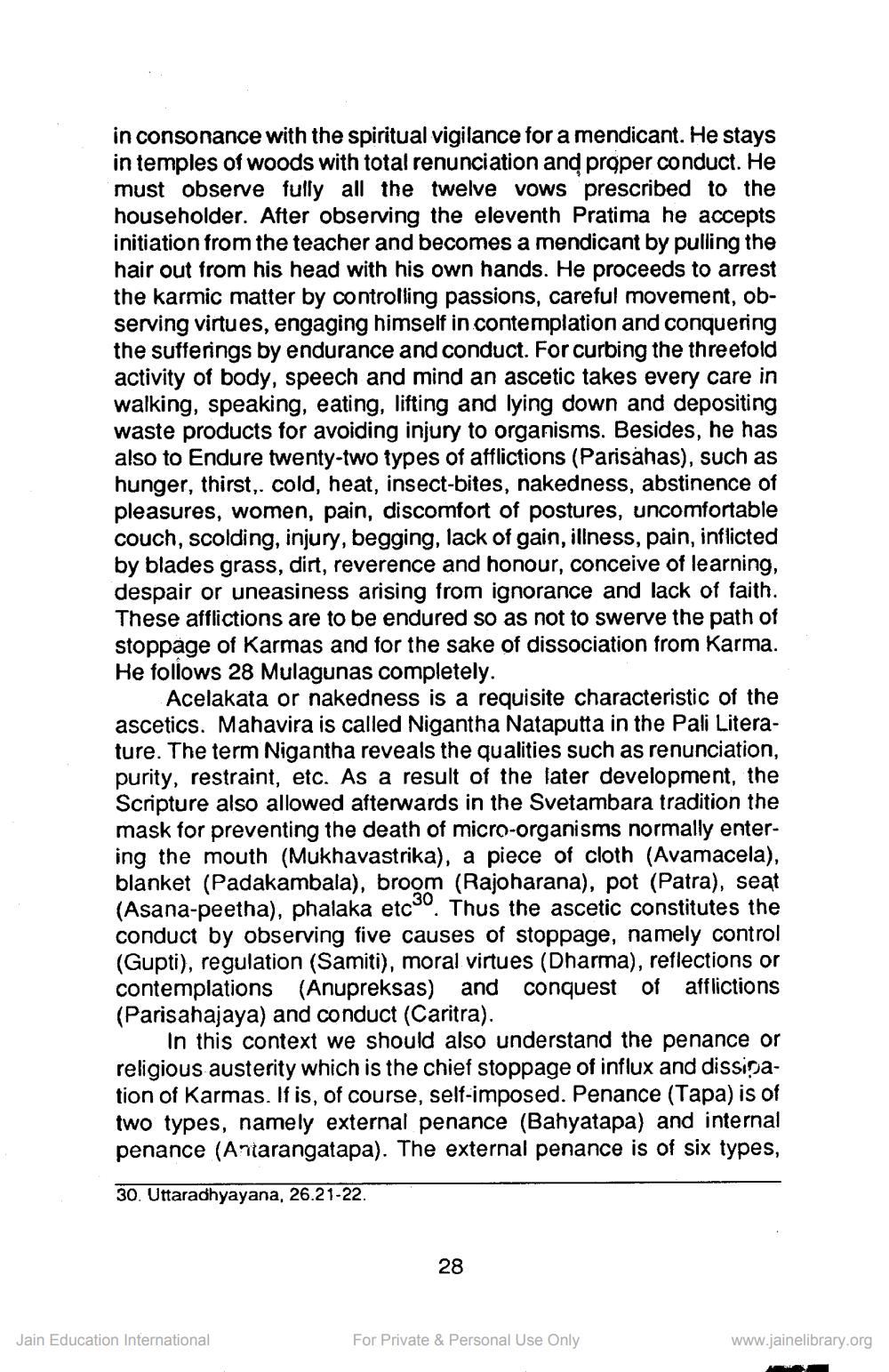________________
in consonance with the spiritual vigilance for a mendicant. He stays in temples of woods with total renunciation and proper conduct. He must observe fully all the twelve vows prescribed to the householder. After observing the eleventh Pratima he accepts initiation from the teacher and becomes a mendicant by pulling the hair out from his head with his own hands. He proceeds to arrest the karmic matter by controlling passions, careful movement, observing virtues, engaging himself in contemplation and conquering the sufferings by endurance and conduct. For curbing the threefold activity of body, speech and mind an ascetic takes every care in walking, speaking, eating, lifting and lying down and depositing waste products for avoiding injury to organisms. Besides, he has also to Endure twenty-two types of afflictions (Parisahas), such as hunger, thirst, cold, heat, insect bites, nakedness, abstinence of pleasures, women, pain, discomfort of postures, uncomfortable couch, scolding, injury, begging, lack of gain, illness, pain, inflicted by blades grass, dirt, reverence and honour, conceive of learning, despair or uneasiness arising from ignorance and lack of faith. These afflictions are to be endured so as not to swerve the path of stoppage of Karmas and for the sake of dissociation from Karma. He follows 28 Mulagunas completely.
Acelakata or nakedness is a requisite characteristic of the ascetics. Mahavira is called Nigantha Nataputta in the Pali Literature. The term Nigantha reveals the qualities such as renunciation, purity, restraint, etc. As a result of the later development, the Scripture also allowed afterwards in the Svetambara tradition the mask for preventing the death of micro-organisms normally entering the mouth (Mukhavastrika), a piece of cloth (Avamacela), blanket (Padakambala), broom (Rajoharana), pot (Patra), seat (Asana-peetha), phalaka etc30. Thus the ascetic constitutes the conduct by observing five causes of stoppage, namely control (Gupti), regulation (Samiti), moral virtues (Dharma), reflections or contemplations (Anupreksas) and conquest of afflictions (Parisahajaya) and conduct (Caritra).
In this context we should also understand the penance or religious austerity which is the chief stoppage of influx and dissipation of Karmas. If is, of course, self-imposed. Penance (Tapa) is of two types, namely external penance (Bahyatapa) and internal penance (Antarangatapa). The external penance is of six types,
30. Uttaradhyayana, 26.21-22.
28
Jain Education International
For Private & Personal Use Only
www.jainelibrary.org




